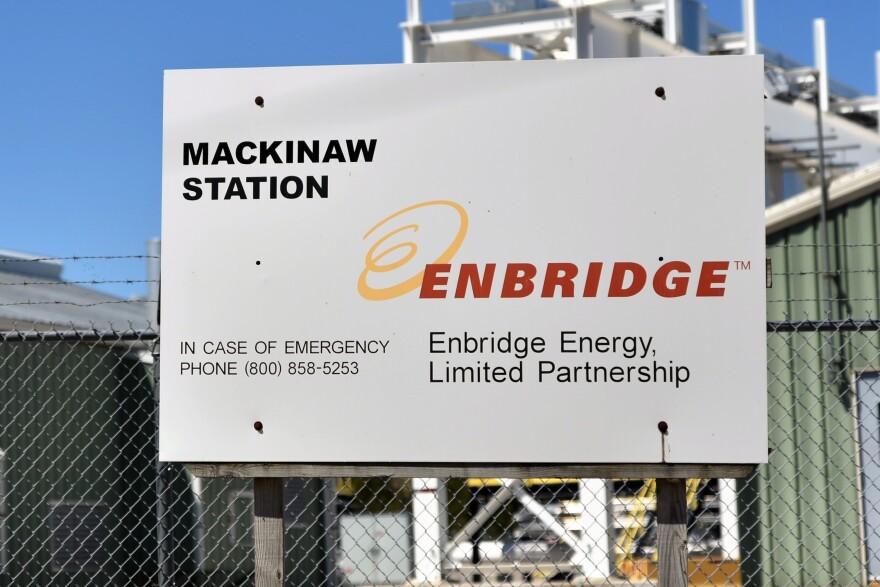Last Friday, the Michigan Public Service Commission approved Enbridge’s application to construct a tunnel to replace the 70-year-old Line 5. This decision, while celebrated by the Canadian oil company, has been met with much opposition. Bridge Michigan environmental reporter Kelly House joined us on Stateside to discuss this decision and what’s to come from here.
What has led up to this decision?
Plans for the tunnel were announced in 2018 as a solution to concerns of oil spills. The tunnel, a projected $500 million plan, was initially proposed to be finished in 2024. However, Enbridge has to acquire federal and state permits to start construction, and this is one of those permits.
Enbridge sought out the permit in 2020, and the Michigan Public Service Commission has been deliberating since. The deliberation was not over the tunnel being built, but rather whether or not Enbridge could move the existing pipeline into the tunnel if the tunnel was built.
Who made this decision?
In a 2-0 vote, with one commissioner abstaining, the Michigan Public Service Commission approved Enbridge’s construction plans. This decision was handled differently from other PSC cases. Kelly House said that while cases like this are typically held before an administrative law judge, this case was handled and reviewed by the PSC themselves.
What is the controversy around this tunnel?
Much of this controversy pertains to the four-mile stretch of the pipeline that crosses the Straits of Mackinac in open water. This stretch has been dented by ships’ anchors, which has created questions about the viability of the pipeline and fears of environmental disasters.
Tribes across Michigan have been vocal in their opposition to these construction plans.
“Every federally recognized tribe in Michigan has passed some sort of a resolution opposing the pipeline,” House said. “Tribes say that, for them, it's a matter of treaty rights — in addition to the environmental concerns that are shared by environmental groups across the state … They were not consulted when it was constructed, which a process today would look much different, and that their treaty rights can't be protected if there is a threat of a catastrophe that could, you know, wipe out fish populations in the Great Lakes.”
On top of these treaty rights, tribes have raised safety concerns and pointed to the potential threat to cultural artifacts in the tunnel’s construction.
Another point of contention is whether or not the state of Michigan has the jurisdiction to shut down Line 5, as it crosses other states and Canada. Enbridge has argued that Michigan cannot shut the pipeline down because it’s subject to an international treaty with Canada and is regulated by a federal entity — the Pipeline and Hazardous Materials Safety Administration.
What’s next?
This permit is one of several needed for Enbridge to complete this project. They are still waiting for federal approval on the project, which is not expected to come through until 2026. House projected that it may not be until 2030, if at all, that the project is operational.
Much is still to be determined about this project, with ongoing legal efforts from various tribes to protect their rights and evolving views on climate change and reliance on petroleum.
“Whether or not our legal system would act on tribal treaty arguments remains to be seen because ongoing cases have yet to address that. But certainly a lot is changing. And I think the public reality around climate change is changing, too. We are seeing impacts of the crisis in more tangible ways every day,” House said. “For some people that stresses the need to stop transporting oil via pipeline altogether. But there are still plenty of people who say, ‘Look, we need this product and we're going to need it for a while more now. And a tunnel is better than an aging pipeline in the open water up the streets.’”
GUEST ON TODAY'S SHOW:
- Kelly House, environmental reporter for Bridge Michigan
[Get Stateside on your phone: subscribe on Apple Podcasts, Google Podcasts, or Spotify today.]









